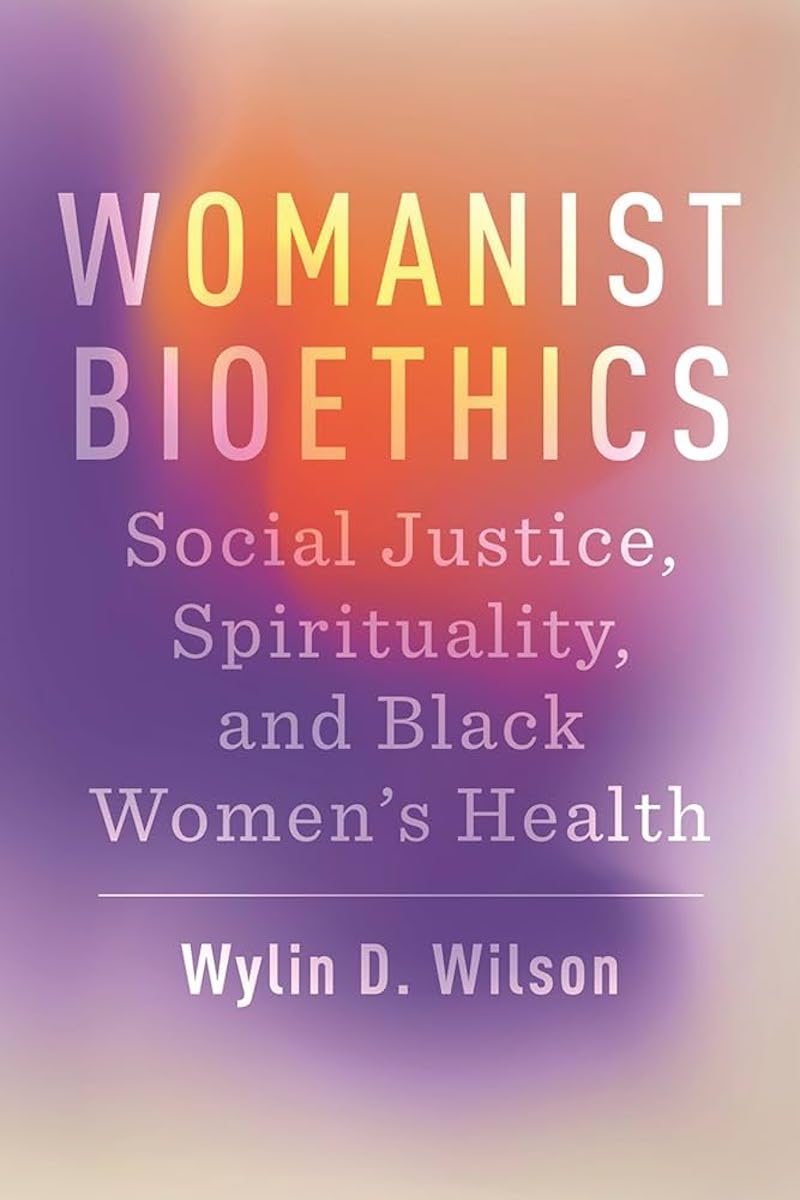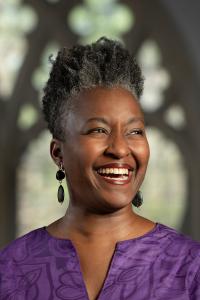
Theologian Reimagines Health Justice for Black Women with a New Womanist Approach

"Womanist Bioethics" by Wylin D. Wilson
"Womanist Bioethics" argues we must not only include but center Black women’s experiences and voices in bioethics discourse and practice.
LOS ANGELES, CA, UNITED STATES, January 24, 2025 /EINPresswire.com/ -- Black people, and especially Black women, suffer and die from diseases at much higher rates than their white counterparts. The vast majority of these health disparities are not attributed to behavioral differences or biology but to the pervasive devaluation of Black bodies. Wylin D. Wilson, one of the few Black female theologians working at the intersection of faith and bioethics—the study of ethical issues in biology, medicine, and technology—is blazing a trail for new ways to address this deadly health crisis. Her forthcoming book, "Womanist Bioethics: Social Justice, Spirituality, and Black Women's Health" is a womanist approach to the field of bioethics, which has historically been dominated by white male voices. This book is the first to construct a specifically womanist bioethics. Scheduled for publication on January 28, 2025 from NYU Press, it outlines how hospitals, churches, and the larger community can better respond to the healthcare needs of Black women and other vulnerable communities.
Wilson, Assistant Professor of Theological Ethics at Duke Divinity School, also breaks new ground by incorporating the Black Church’s contributions into the field of bioethics. With the Black Church's long history of addressing both the spiritual and physical needs of Black communities, especially in the face of racism and segregation, Wilson argues that bioethics could greatly benefit from sustained engagement with Black churches to create a more equitable approach to health, science, and medicine for all people.
In her book, she uncovers the often-overlooked contributions of Black women, like Emilie Townes, to American health reform and delves into the maternal health crisis in the United States. She examines what it reveals about our society, noting that Black women face a maternal mortality rate of 69.9 per 100,000 (three times higher than that of white women). She also explores policy initiatives like the Momnibus Act, which aims to tackle this pressing issue.
Additionally, Wilson sheds light on rural health disparities, such as the case of Annie Grant, a 55-year-old Black woman who died after contracting COVID while working at a Tyson chicken plant. She references stories like Grant's to show how a womanist bioethics framework can address the issue of unequal access to medical technology and infrastructure in rural America.
M. Therese Lysaught of Loyola University Chicago has endorsed "Womanist Bioethics" as "a must-read for those in medicine, the church, or bioethics," adding, "I have been waiting for this book for 15 years."
Charlene Galarneau, author of "Communities of Health Care Justice," praises the book, saying it "presents an original, social change-oriented framework that calls US bioethics to center Black women’s lives as well as matters of racism, rurality, gender, spirituality, and faith communities in the essential work of health justice. In this rich constellation of Womanism, Black Church prophetic witness tradition, and Black health activism, Wylin D. Wilson lays fertile ground for the flourishing of womanist bioethics and anti-oppression bioethics at large."
By centering the voices of Black women, mothers, immigrants, essential workers, and other vulnerable groups among us, "Womanist Bioethics" calls for a rethinking of healthcare to tackle the dangerous intersection of race and health in America. It is essential not just for those in medicine, the church, or bioethics, but for anyone who wants to start thinking differently about how we care for the health of everyone in our communities.
ABOUT THE AUTHOR
Wylin D. Wilson is Assistant Professor of Theological Ethics at Duke Divinity School. She is the author of "Economic Ethics and the Black Church" and "Womanist Bioethics: Social Justice, Spirituality, and Black Women's Health."
ABOUT THE BOOK
Written by Dr. Wylin Wilson and published by NYU Press on January 28, 2025, "Womanist Bioethics" develops the first specifically womanist form of bioethics, focused on the diverse vulnerabilities and multiple oppressions that women of color face.
MEDIA CONTACT
To request a copy of "Womanist Bioethics," contact publicist Nanda Dyssou of Coriolis Company.
Nanda Dyssou
Coriolis
+1 424-226-6148
nanda@corioliscompany.com
Distribution channels: Book Publishing Industry, Culture, Society & Lifestyle, Healthcare & Pharmaceuticals Industry, Human Rights, Politics
Legal Disclaimer:
EIN Presswire provides this news content "as is" without warranty of any kind. We do not accept any responsibility or liability for the accuracy, content, images, videos, licenses, completeness, legality, or reliability of the information contained in this article. If you have any complaints or copyright issues related to this article, kindly contact the author above.
Submit your press release
